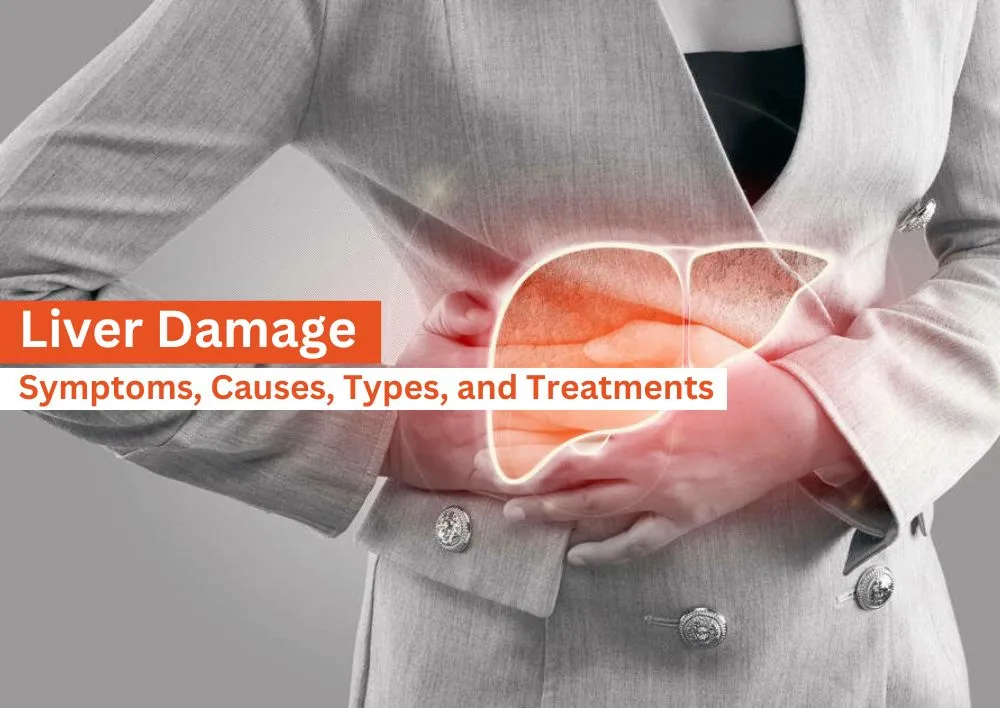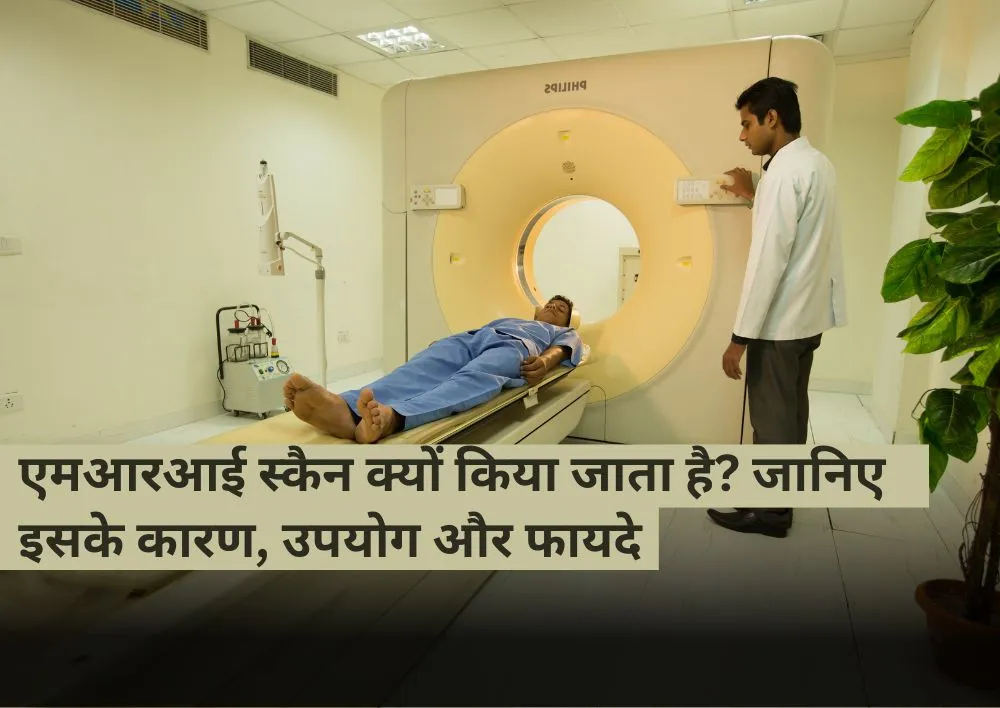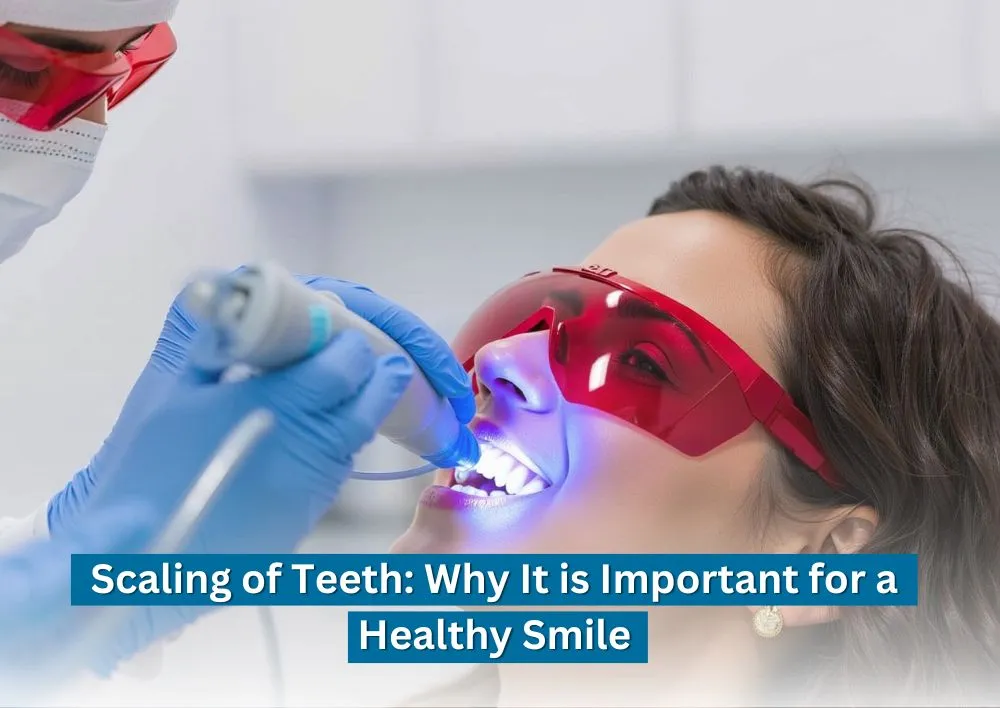Liver Damage: Symptoms, Causes, Types and Treatments
Summary: Liver damage can develop silently, often showing symptoms like fatigue, jaundice, and swelling only in later stages. From fatty liver disease to cirrhosis and liver failure, various conditions can impact liver health. Understanding the potential factors can help you take proactive steps toward a healthier liver.
Overview
The liver is one of the most vital organs in our body, performing over 500 essential functions, including detoxification, metabolism, and nutrient storage. However, when the liver is damaged, it can lead to severe health issues. Liver damage can occur due to various factors such as excessive alcohol consumption, viral infections, obesity, or genetic disorders. Early detection and proper treatment can help prevent severe complications. In this blog, we will explore the types, symptoms, causes, and treatment options for liver damage.
What is Liver Damage?
Liver damage occurs when the liver's function is impaired due to injury, disease, or prolonged exposure to harmful substances. Since the liver plays a crucial role in detoxification, metabolism, and nutrient storage, any damage can lead to serious health complications. Early detection and proper treatment are essential to prevent severe liver-related conditions.
Types of Liver Damage
According to the best Gastroenterologist in Gurgaon at Miracles Apollo Cradle/Spectra, Liver damage can occur in different forms, each with unique causes and effects. Some of the most common types include:
1. Fatty Liver Disease
This condition occurs when excessive fat builds up in liver cells. It has two main types:
-
Metabolic Dysfunction-associated Fatty Liver Disease (MAFLD): Usually associated with obesity, diabetes, and an unhealthy diet.
-
Alcoholic Fatty Liver Disease: Caused by excessive alcohol consumption.
2. Hepatitis
Hepatitis is a liver inflammation caused by viral infections, toxins, or autoimmune diseases. Types include:
-
Hepatitis A: Spread through contaminated food and water.
-
Hepatitis B & C: Transmitted through blood, sexual contact, or from mother to child during birth.
-
Hepatitis D & E: Less common; often associated with other hepatitis infections.
3. Cirrhosis
Cirrhosis is the advanced stage of liver scarring due to prolonged liver disease or damage. It can result from chronic hepatitis, alcohol abuse, or fatty liver disease.
4. Liver Fibrosis
This is an early stage of liver scarring that occurs before cirrhosis. If diagnosed early, it can be managed effectively.
5. Liver Cancer
Primary liver cancer, or hepatocellular carcinoma (HCC), develops in the liver cells, often due to chronic liver diseases like hepatitis or cirrhosis.
6. Liver Failure
This occurs when the liver loses most of its function due to severe disease or injury. It can be acute or chronic.
What are the Symptoms of Liver Damage?
Liver damage usually progresses silently, showing symptoms only in later stages. Some warning signs include:
-
Fatigue
-
Weakness
-
Loss of appetite
-
Unexplained weight loss
-
Yellowing of the skin and eyes (jaundice)
-
Dark urine
-
Pale stools
-
Abdominal pain and swelling
-
Nausea and vomiting
-
Easy bruising and bleeding
-
Swollen legs and ankles
-
Confusion and memory issues
Recognizing liver damage symptoms early can help in seeking timely medical intervention.
Why Does Liver Damage Happen?
Several factors contribute to liver damage. Some common causes include:
1. Excessive Alcohol Consumption
Heavy alcohol use over time can lead to fatty liver, alcoholic hepatitis, and cirrhosis. Alcohol is metabolized in the liver, and excessive intake puts immense stress on liver cells, leading to inflammation and scarring. Long-term alcohol abuse can severely impair liver function, increasing the risk of liver failure and liver cancer.
2. Viral Infections
Hepatitis B and C are among the leading causes of chronic liver disease worldwide. These infections can cause long-term liver inflammation, leading to scarring (fibrosis), cirrhosis, and even liver cancer. Hepatitis A and E, although not chronic, can also cause severe liver damage, especially in individuals with pre-existing liver conditions. Getting vaccinated for hepatitis A and B and practicing safe hygiene can reduce the risk of infection.
3. Obesity and Poor Diet
An unhealthy diet high in processed foods, sugars, and saturated fats contributes to fatty liver disease. Non-Alcoholic Fatty Liver Disease (NAFLD) is closely related to obesity, type 2 diabetes, and metabolic syndrome. Over time, excessive fat accumulation in liver cells can trigger inflammation, leading to Non-Alcoholic Steatohepatitis (NASH), fibrosis, and cirrhosis. Maintaining a healthy weight and eating a balanced diet can significantly lower the risk of liver damage.
4. Genetic Disorders
Certain inherited conditions can lead to liver damage, including:
-
Wilson’s Disease: Causes excessive copper buildup in the liver, leading to toxicity and liver damage.
-
Hemochromatosis: This leads to excessive iron accumulation in the liver, causing oxidative stress and cell damage.
-
Alpha-1 Antitrypsin Deficiency: A genetic disorder that can cause liver cirrhosis and lung disease.
Early detection and medical management of these genetic conditions can help prevent severe liver complications.
5. Medications and Toxins
The liver plays an important role in metabolizing drugs and detoxifying harmful substances. Long-term use of certain medications, such as acetaminophen, antibiotics, and nonsteroidal anti-inflammatory drugs (NSAIDs), can strain the liver and lead to toxicity. Additionally, exposure to environmental toxins, industrial chemicals, and herbal supplements with unregulated ingredients can contribute to liver damage. To protect your liver, always use medications as prescribed and avoid self-medication.
6. Autoimmune Diseases
In autoimmune liver diseases, the immune system mistakenly attacks healthy liver cells, leading to inflammation and scarring. These include:
-
Autoimmune Hepatitis: Causes chronic liver inflammation and, if untreated, can lead to cirrhosis.
-
Primary Biliary Cholangitis (PBC): Affects the bile ducts and can lead to liver damage over time.
-
Primary Sclerosing Cholangitis (PSC): A chronic condition that affects the bile ducts, increasing the risk of liver failure.
While autoimmune liver diseases cannot be completely cured, medications can help manage inflammation and slow down disease progression.
7. Other Underlying Conditions
Several other health conditions can increase the risk of liver damage, including:
-
Diabetes: High blood sugar levels contribute to fatty liver disease.
-
High Cholesterol: This leads to fat accumulation in the liver, increasing the risk of liver disease.
-
Metabolic Disorders: Conditions like insulin resistance and metabolic syndrome can cause liver inflammation and damage over time.
Managing these conditions through a healthy lifestyle, proper diet, and medical treatment can help reduce liver disease risk.
How to Diagnose Liver Damage?
Early diagnosis of liver damage is important for effective treatment. Common diagnostic methods include:
-
Blood Tests: Liver function tests (LFTs) check enzyme levels to assess liver health.
-
Imaging Tests: Ultrasound, CT scans, and MRI help detect liver abnormalities.
-
Liver Biopsy: A small sample of liver tissue is analyzed to determine the severity of damage.
-
FibroScan: A specialized ultrasound that measures liver stiffness and detects fibrosis.
How to Repair Liver Damage Naturally
If detected early, liver damage can often be reversed through natural methods. Here are some effective ways to improve liver health:
-
Eat a Liver-Friendly Diet: Include leafy greens, berries, nuts, and lean proteins while avoiding processed foods.
-
Stay Hydrated: Staying well-hydrated aids in removing toxins from the body.
-
Exercise Regularly: Physical activity improves liver function and reduces fat accumulation.
-
Limit Alcohol Intake: Reducing or eliminating alcohol consumption prevents further damage.
-
Use Herbal Remedies: Milk thistle, turmeric, and green tea are known for their liver-protective properties.
-
Get Enough Sleep: Quality sleep helps the liver regenerate and function optimally.
-
Manage Stress: Chronic stress can contribute to inflammation and liver disease.
How is Liver Damage Treated?
The treatment for liver damage depends on the underlying cause. Here are some effective approaches:
1. Medications
-
Antiviral Drugs: Used for hepatitis B and C treatment.
-
Liver-Protective Drugs: Some medications help reduce liver inflammation and slow disease progression.
-
Diuretics: Used to manage swelling due to fluid retention.
2. Medical Procedures
-
Liver Biopsy: Helps diagnose the extent of damage.
-
Endoscopy: Used to check for internal bleeding due to cirrhosis.
3. Liver Transplant
For severe liver failure, a liver transplant may be the only option. A healthy liver from a donor can replace the damaged liver.
4. Regular Health Checkups
Routine liver function tests (LFTs) help in the early detection of liver disease, allowing timely treatment.
How to Prevent Liver Damage?
Some tips to keep your liver healthy include:
-
Maintain a balanced diet and healthy weight.
-
Limit alcohol intake.
-
Avoid unnecessary medications and self-medication.
-
Get vaccinated for hepatitis A and B.
-
Stay physically active.
-
Practice safe sex and avoid sharing needles to prevent hepatitis infections.
-
Go for regular health checkups, especially if you have risk factors for liver disease.
Conclusion:
Liver damage can be life-threatening if not detected and treated on time. Since symptoms often appear late, regular health checkups and a healthy lifestyle play a crucial role in liver health. If you notice any signs of liver disease, consult a gastroenterologist near you at Miracles Healthcare immediately. Taking care of your liver today can ensure a healthier future.
Frequently Asked Questions
Yes, early-stage liver damage can be reversed with lifestyle changes, a healthy diet, and proper medical care.
It can cause fatigue, abdominal pain, nausea, jaundice, and swelling in the legs or abdomen.
Some antidepressants, like amitriptyline, fluoxetine, and sertraline, can cause liver damage in rare cases.
Excessive alcohol consumption over time leads to liver inflammation, fatty liver disease, cirrhosis, and liver failure.
Mild liver damage can heal with a healthy lifestyle, but severe damage like cirrhosis is irreversible.
Some forms of liver damage can be treated, but conditions like advanced cirrhosis may require lifelong management or a liver transplant.
Yes, liver damage can slow digestion and bile production, leading to constipation.
Yes, liver damage can lead to bile buildup in the blood, causing severe itching.













Was the information useful?
0 0